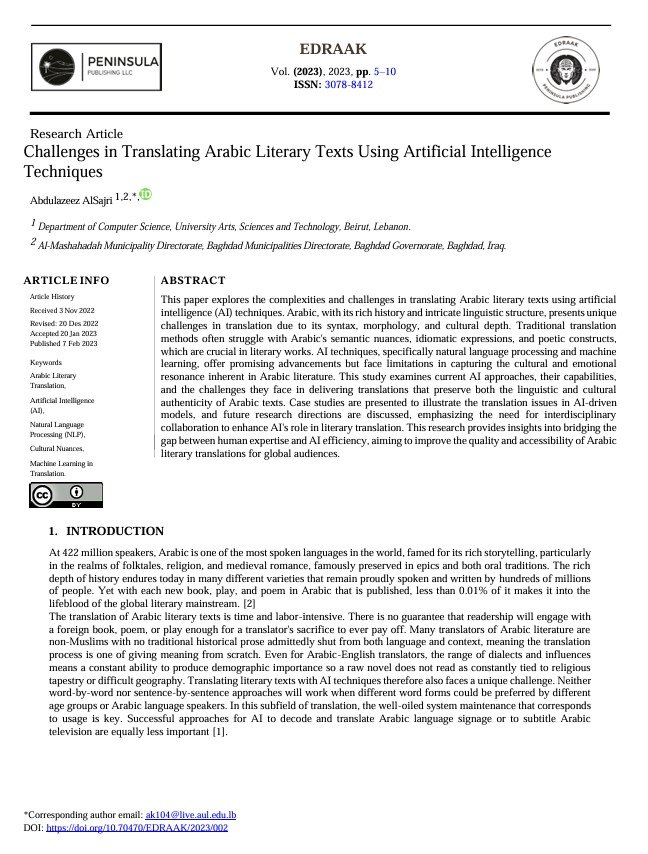Challenges in Translating Arabic Literary Texts Using Artificial Intelligence Techniques
Main Article Content
Abstract
This paper explores the complexities and challenges in translating Arabic literary texts using artificial intelligence (AI) techniques. Arabic, with its rich history and intricate linguistic structure, presents unique challenges in translation due to its syntax, morphology, and cultural depth. Traditional translation methods often struggle with Arabic's semantic nuances, idiomatic expressions, and poetic constructs, which are crucial in literary works. AI techniques, specifically natural language processing and machine learning, offer promising advancements but face limitations in capturing the cultural and emotional resonance inherent in Arabic literature. This study examines current AI approaches, their capabilities, and the challenges they face in delivering translations that preserve both the linguistic and cultural authenticity of Arabic texts. Case studies are presented to illustrate the translation issues in AI-driven models, and future research directions are discussed, emphasizing the need for interdisciplinary collaboration to enhance AI's role in literary translation. This research provides insights into bridging the gap between human expertise and AI efficiency, aiming to improve the quality and accessibility of Arabic literary translations for global audiences.
Article Details

This work is licensed under a Creative Commons Attribution 4.0 International License.
